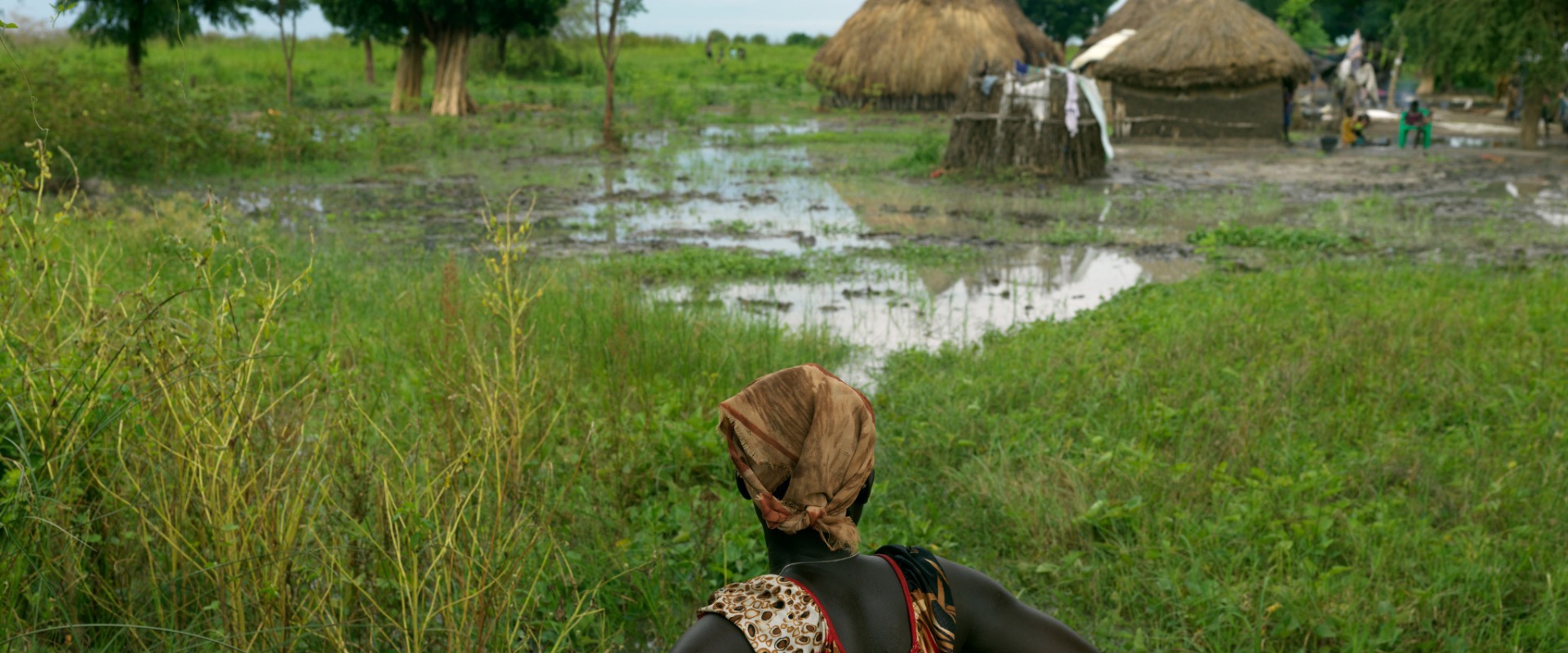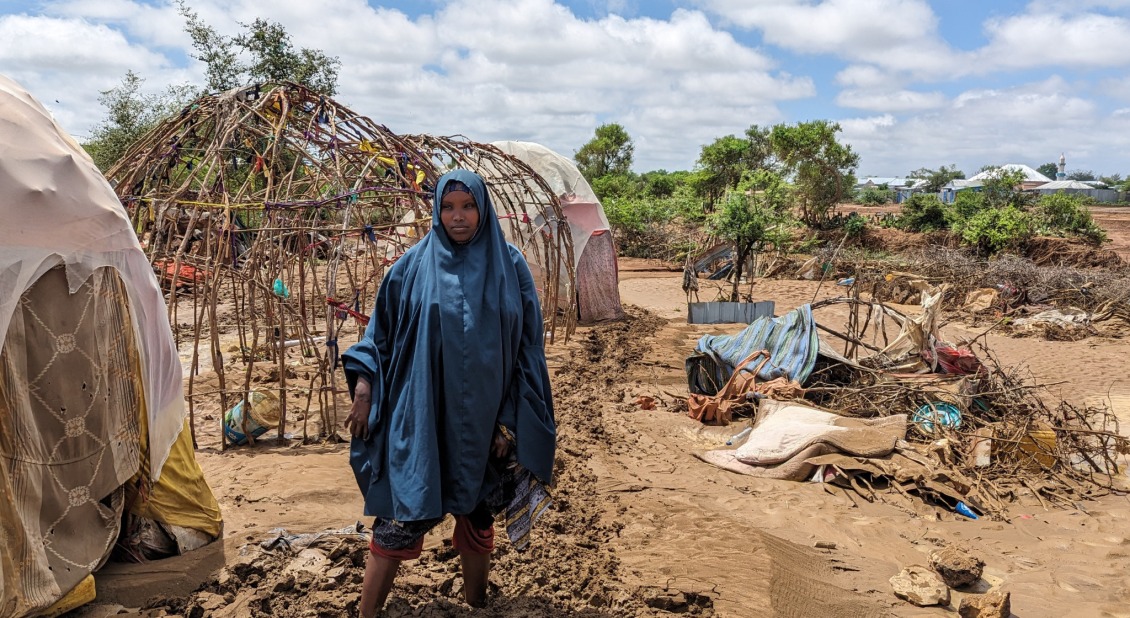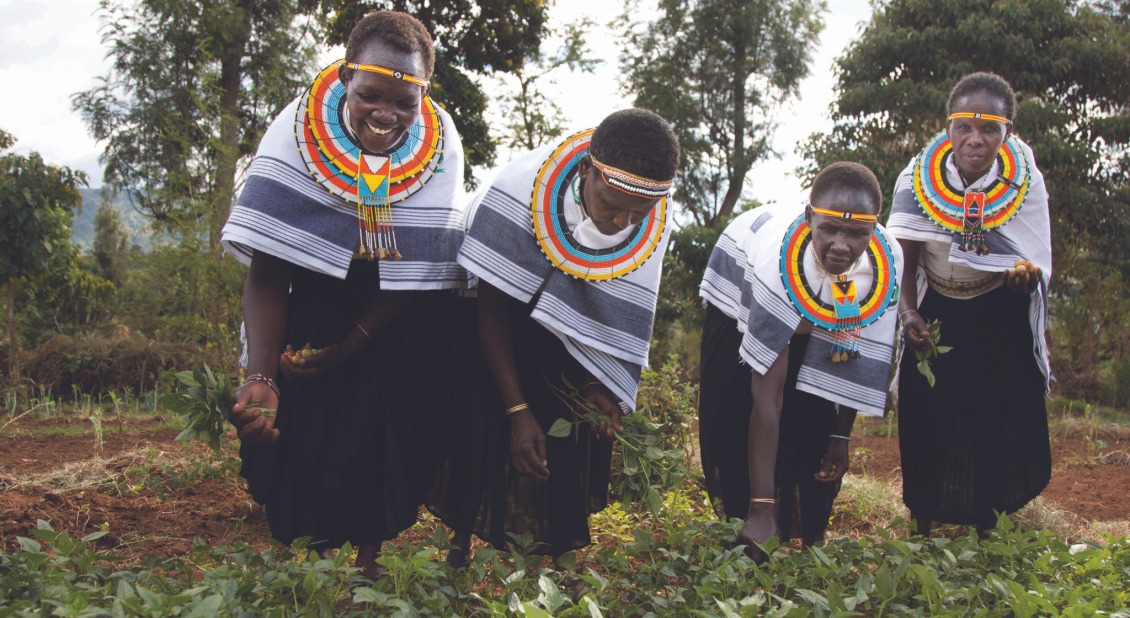
GIVE THIS RAMADAN

A warmer, less predictable climate means less food on the table for millions of people worldwide, especially in places where conflict, economic instability, and recurring extreme weather events make adapting to climate change challenging.
Climate change-induced droughts, floods, and high temperatures are destroying the planet’s food sources, particularly in regions where communities rely on agriculture as their primary source of food and income. Farmers, who rely on their harvests, are seeing their crops wash away in high waters, dry up in droughts, or burn in wildfires. Herders have to walk farther and farther for grazing land and water for their livestock to survive and lose their animals in climate disasters.
As the frequency and intensity of extreme weather events continue to escalate, vulnerable populations are being pushed deeper into hunger and poverty. Today, as many as 783 million people worldwide are experiencing hunger. By 2050, the climate crisis could increase this figure by another 80 million people.
COP28 presents a critical moment for world leaders to commit to decisive climate action. That’s why Action Against Hunger calls on leaders at COP28 to take united action to address the devastating impacts of the climate crisis on global food security.
The annual United Nations Climate Change Conference (COP28) is an opportunity for major carbon-emitting nations to work on solutions to tackle climate change and prevent global warming from exceeding 1.5°C.
This year’s COP28, from November 30 to December 12 in Dubai, presents a critical moment for world leaders to take decisive climate action. By moving quickly and equitably away from all fossil fuels and honoring climate-finance commitments, leaders can safeguard food security for present and future generations hit hardest by climate change.

Climate justice addresses the climate crisis’ disproportionate impact on communities who have contributed very few greenhouse gas emissions. And, though they have done the least to cause climate change, the poorest and most marginalized communities are often the most vulnerable to its deadly effects.
The climate crisis is a hunger crisis. But, like hunger, it’s a challenge we can solve. At Action Against Hunger, we’re working hand-in-hand with communities around the world to adapt to changing climates, to better prepare for disasters, to build resilience, and to scale up sustainable solutions.

In 2015, high-income countries pledged $100 billion USD per year to help low- and middle-income countries build climate resilience. However, this commitment has been repeatedly unfulfilled, and calls for help from countries most affected by climate change have largely gone unanswered. At COP28, high-income countries must honor their financial commitments and provide adequate, needs-based funding to support community-led mitigation and adaptation efforts around the world.
As a humanitarian and development organization working to address the causes and consequences of hunger and malnutrition, we are deeply concerned by the climate crisis’ impact on global food security. We call on governments and world leaders to act urgently and address the devastating impacts of climate change on the right to nutritious food, water, health, and a healthy environment.
As COP takes place in Dubai and fossil fuel lobbyists aim to influence negotiations, it is important for humanitarian and development organizations to participate in COP28. Climate COPs are the only international fora where the fight against climate change can be tackled with almost all countries present. To prevent the fossil fuel lobby from pushing their agendas, we need to bring the voices of people from the most vulnerable communities to the table and highlight the importance of climate action.
Join our community of supporters passionate about ending world hunger.